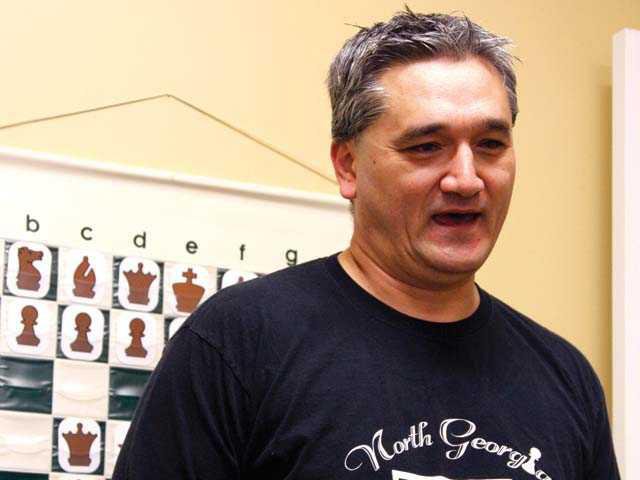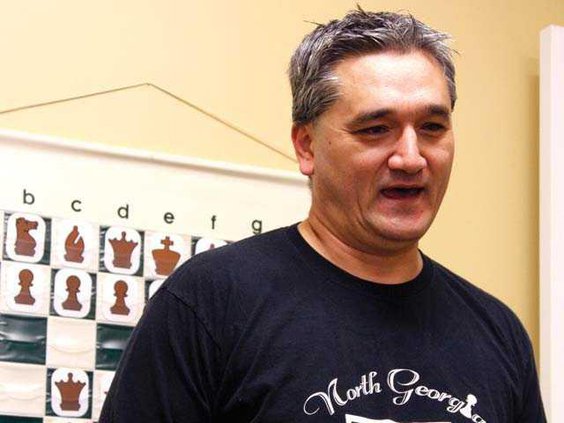Joe Couvillion talks fast and thinks even faster.
The Forsyth County chess expert brought his skills last fall to the Georgia State Prison in Reidsville, where he played 18 simultaneous games. The inmates are awaiting rematches early this year.
Couvillion, who owns North Georgia Chess Center, said employees at the prison indicted he likely was the first to challenge inmates there in a group match.
Of the 18 games, Couvillion won 15, while three could not be finished in the five hours he played. Still, he said he found some challenges.
“Sometimes, I had to really do some swindling in the game because I was in trouble,” he said, adding that he thinks some of his opponents could fare well in tournament play.
For Couvillion, it takes about 30 seconds to make a move in simultaneous matches such as those.
He said he follows the principles he’s developed in more than 30 years of playing the game, and keeps a visualization of each board in his head as he goes.
During the games with the inmates, he even caught some illegal moves his opponents had made when he returned to the board.
Though he made a clean sweep in the matches, Couvillion said he’s been told the inmates eagerly await his return.
“What else can they do?” he said. “I think they were happy to have someone else come in.”
Inmates often learn to play the game during their sentences, said Russell Floyd, senior mental health counselor at the Georgia State Prison.
Floyd, a nearly lifelong chess player, said he also uses the game as a teaching tool.
“Chess teaches you many skills, the No. 1 being patience,” he said. “It brings about analytical thinking and builds relationships.”
The 64-square board has a certain “magic” to it, Floyd said. When the game is placed on a table, people always seem to be drawn to it and want to learn how to play.
In prison, it gives the inmates a way to be productive with their time, he said.
“It’s good for anybody, particularly folks we’re hoping to send back home to have some skills and improve their overall conditioning and hope they don’t make any return trips to prison,” he said.
During Couvillion’s visit, Floyd said employees marveled at how focused the inmates stayed on a single task for several hours.
The opponents were selected through a pre-tournament within several dormitories at the prison, Floyd said.
He needed a player of Couvillion’s skill, who could juggle several games at once, and found him during a tournament in which he participated at the North Georgia Chess Center.
Couvillion accepted the invite right away, saying he had no qualms about facing the inmates, since the facility is quite secure.
Though he’s been at it for more than 30 years, Couvillion rarely turns down an opportunity to play the game he loves and teaches at the chess center.
“Even though there’s a finite number of pieces with a finite number of squares, it almost seems like an infinite number of possibilities,” he said. “That’s what I like about it.”

